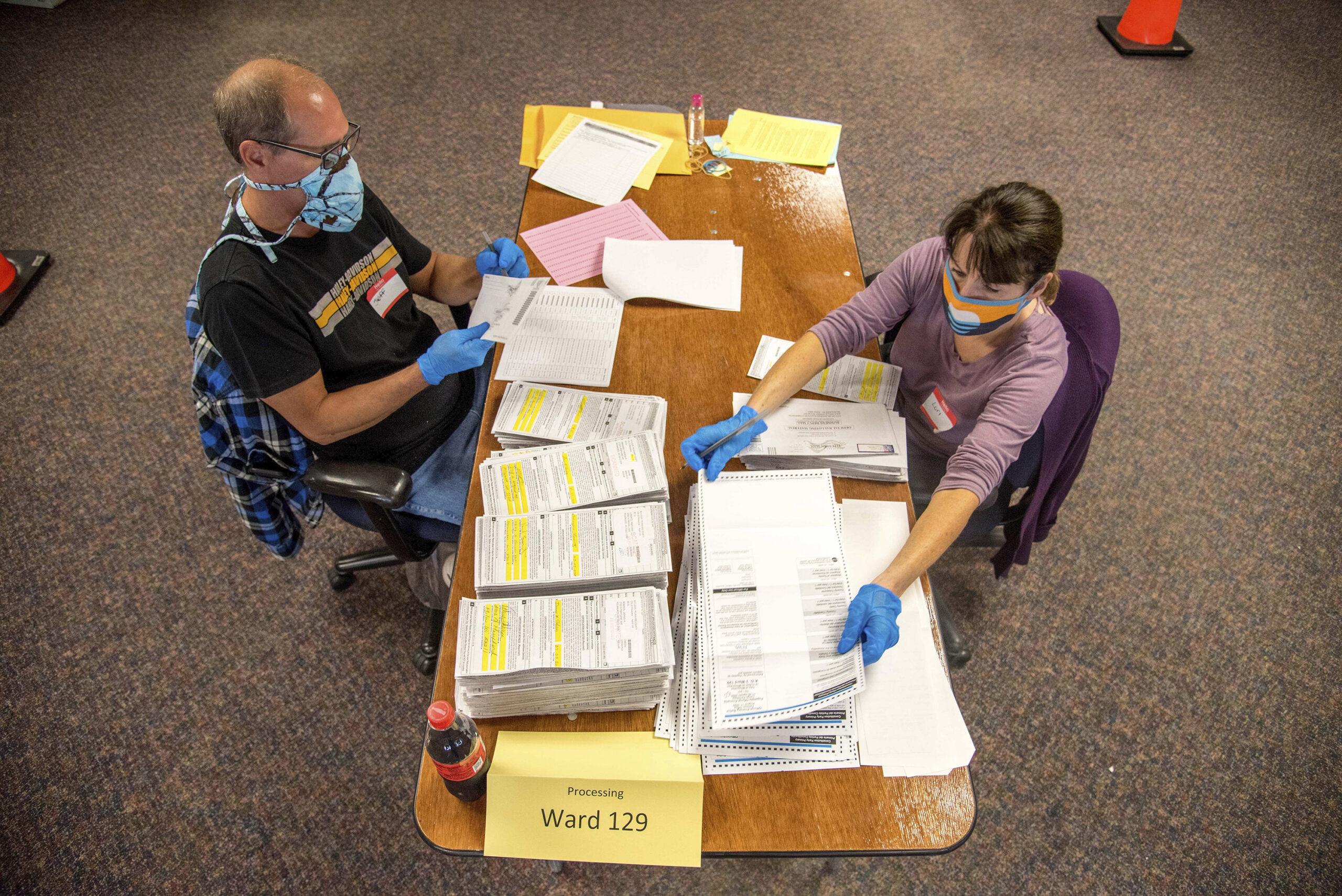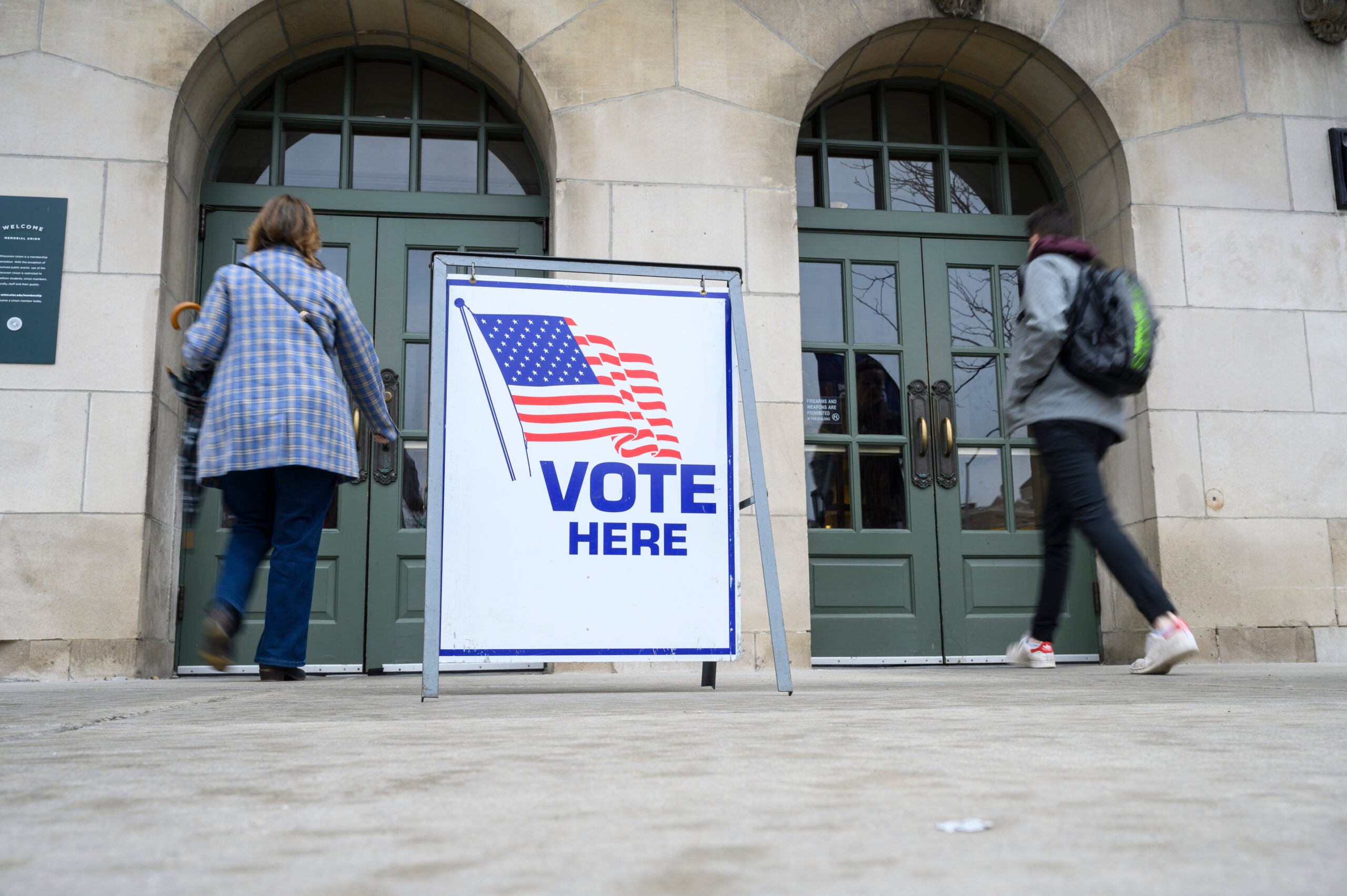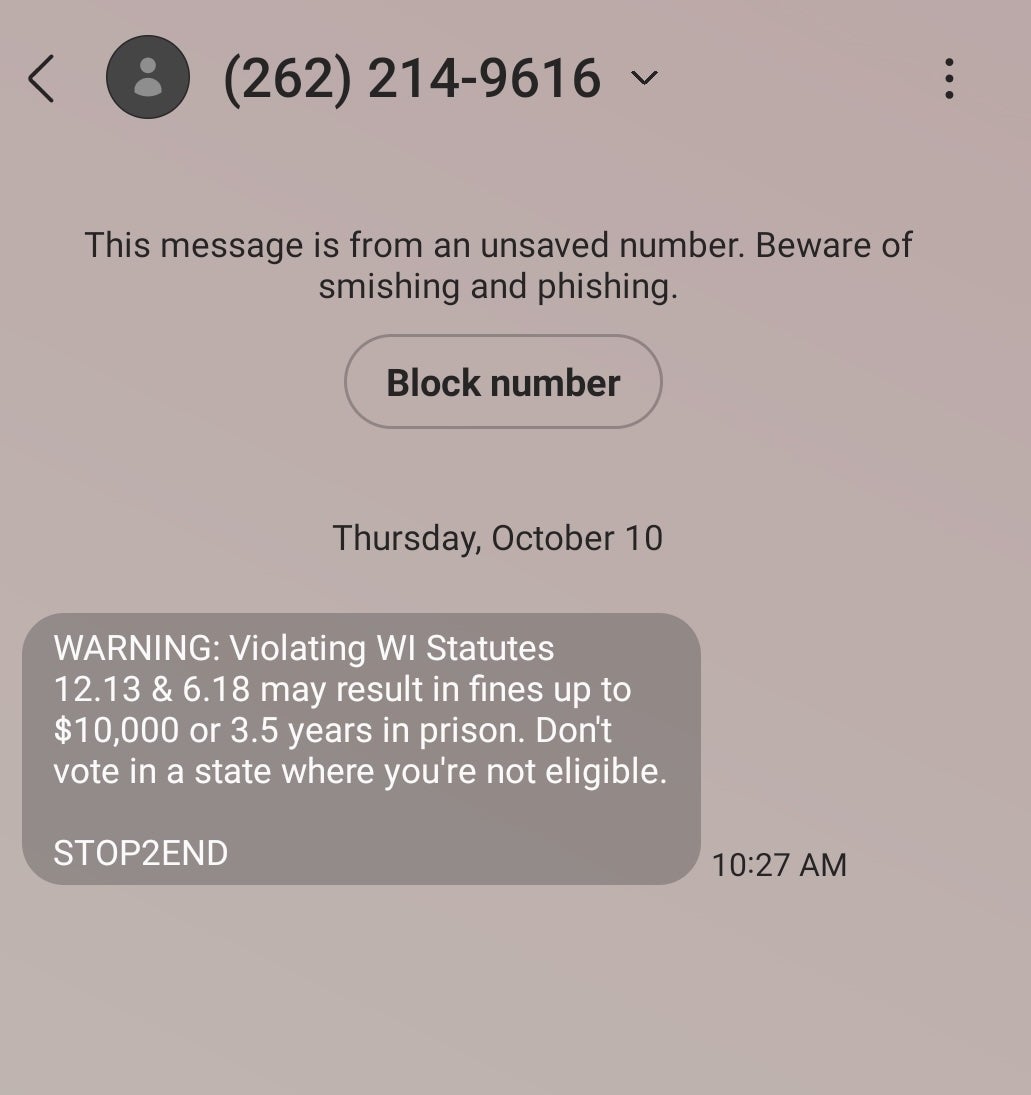Voters could sign up to receive a text message when their absentee ballots are received under a proposal being circulated in the Wisconsin State Legislature.
The bill, co-authored by Rep. David Steffen, R-Green Bay, would not be mandatory. Instead, voters would opt into the service as a way of solidifying confidence in the absentee voting system, Steffen said.
“Unfortunately, there’s still some people who have some reservations about voting absentee,” Steffen told Wisconsin Public Radio. “And by adding this form of confirmation … I think there’s gonna be more people who will be open to the idea of voting absentee, and that’s my goal.”
Stay informed on the latest news
Sign up for WPR’s email newsletter.
Currently, voters can check on the status of their absentee ballot applications and ballots by visiting the state’s MyVote Wisconsin website, which is run by the Wisconsin Elections Commission.
If passed, Steffen’s plan would let voters provide their cell phone numbers to receive a text confirmation when their ballot applications or ballots are scanned by their clerk.
This new program would fit into the existing MyVote system, Steffen said, while offering voters a more convenient way of checking on their absentee ballots.
“The public has become very accustomed to receiving text message confirmations for their dry cleaning, their prescriptions, an upcoming flight, packages. And I realized, well, why don’t we have this for our absentee ballots?” he said.
Steffen said the Legislative Fiscal Bureau estimated that adding a text messaging option would cost about $10,000 to $30,000 per year, with a startup cost of about $25,000.
Absentee voting increased significantly in Wisconsin in 2020, when a high-profile presidential election coincided with a deadly pandemic that kept many people at home. About 2 million absentee ballots were processed that November, according to an official report by the Wisconsin Elections Commission.
In the 2022 midterm elections last November, more than 740,000 Wisconsinites voted absentee.
Steffen said he anticipates bipartisan support for what he describes as a “common sense” change — but efforts to change or clarify Wisconsin voting laws in recent years have been anything but simple.
Absentee voting has been at the heart of many of the legal battles involving Wisconsin election laws. The perpetually gridlocked Wisconsin Elections Commission butted heads — and later found themselves tied up in multiple legal battles — over guidance for “curing” incomplete absentee ballots and the implementation and use of drop boxes.
Last session, Democratic Gov. Tony Evers vetoed dozens of Republican bills that would have changed Wisconsin voter laws, including bills that would have barred election officials from correcting information on absentee ballots, checked voter registration rolls against citizenship databases, restricted election officials from receiving private grant money, and given the Legislature more oversight over election policy and funding.
A spokesperson for Evers said the office was reviewing Steffen’s proposal.
“Gov. Evers will continue fighting to make it as easy as possible for every eligible voter to cast their ballot and supports efforts to further bolster Wisconsin’s fair, safe, and secure elections,” said Britt Cudaback, Evers’ communications director.
Tammy Patrick, an executive at the National Association of Election Administrators, said receiving a text message when you vote increases voter access.
“In general, bills like that are wonderful because it provides voters with the information that their ballot was received,” Patrick said.
An additional best practice, she added, would be for voters to also be informed if their absentee ballots had been rejected, giving them an opportunity to fix the problem.
Steffen says the text system will offer voters a more tangible assurance that their votes were counted after being dropped in a mailbox or at their clerk’s office.
“This would be the electronic version of the ‘I Voted’ sticker,” he said. “And that’s a value to everyone, to have that additional layer of comfort and security that they know that their ballot has actually been received.”
Wisconsin Public Radio, © Copyright 2025, Board of Regents of the University of Wisconsin System and Wisconsin Educational Communications Board.





